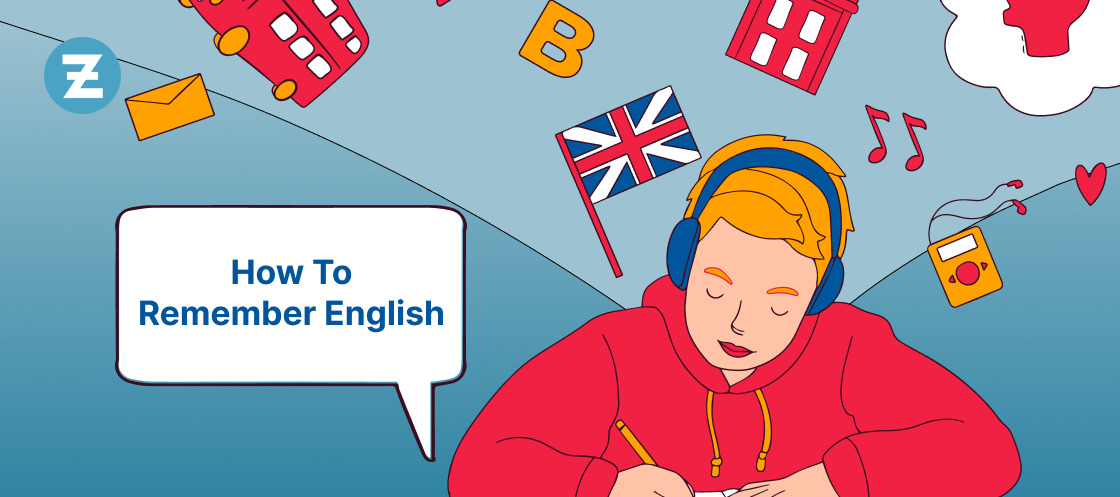Welcome to the world of English! With its rich history, beautiful literature, and expansive vocabulary, English is a language that has captivated millions of people around the world. It is a language that is used for communication, understanding, creativity, and for more. In this blog, you will find all the information you need to know about the English language, from its origins to its current state. Whether you are a student of the language, an avid reader, or just curious, this blog will have something for you. So read on to find out all about the English language.
History Of The English Language
The English language has an intriguing past, stretching back many centuries and travelling the world. From its beginnings in the Anglo-Saxon kingdoms of England, to its current status as a global language of communication, English has gone through many changes to become the language we know and use today.
The Anglo-Saxons spoke the earliest form of English in England in the 5th century AD. This form of English, known as Old English, was quite different from the language we use today. Latin and Germanic languages heavily influenced the early form of English, and their grammar and syntax differed significantly.
The Norman invasion and rule of England during the Middle Ages further influenced the English language. This period saw the emergence of Middle English, a mix of Old English and Norman French. People spoke Middle English for centuries until Early Modern English emerged in the 1500s.
The Renaissance and the Age of Exploration heavily influenced Early Modern English. This period saw the emergence of a more standardized form of English with a simplified grammar and spelling system. This period also saw the rise of the printing press and the consequent spread of this language throughout the world.
The Industrial Revolution and the rise of the British Empire led to the emergence of the modern English language in the 18th century. This period saw the emergence of British Standard English, a more formal language form. Adopting British Standard English as the language of government and commerce eventually made it the international language of communication.
Today, over one billion people speak English as their primary language, making it the most widely spoken language in the world. It is a language of tremendous diversity, with dialects spoken in regions as far apart as the United States, the United Kingdom, and countries throughout the world.
The history of this language is interesting, full of twists and turns and remarkable changes. From its humble beginnings in the Anglo-Saxon kingdoms of England to its rise to global prominence, the language has undergone a series of transformations to become the language we know and use today.
Types Of English Language
English is widely spoken and used in many countries, cultures, and contexts around the globe. It is not surprising that various types of English language exist.
Standard English
First, there is Standard English, which is the variety of English used in most formal contexts, such as school, work, and official documents. Standard English is generally used as a universal form of communication and is often considered the correct way to speak. This type of English is most commonly found in the United Kingdom, the United States, Australia, and New Zealand.
Colloquial English
Next is Colloquial English, which is the type of English used in informal settings, such as in conversations with friends and family. This type of English is often more relaxed and can include slang and other types of language that are not typically used in formal contexts. Colloquial English can vary greatly from region to region and is often used to add flavor and personality to conversations.
Pidgin English
Third, there is Pidgin English, a type of English spoken in many parts of the world, particularly in areas with a large population of immigrants. Pidgin English is a mixture of words, phrases, and grammar from different languages and is often used to bridge the gap between languages and cultures.
Regional English
Finally, there is Regional English, which is the type of English that is spoken in specific regions or countries. Regional English is often quite distinct from Standard English and may contain unique words, phrases, and grammar specific to that particular region. For example, in the United States, Southern English is often quite distinct from Northern English and includes words and phrases unique to the region, such as y’all and fixin’ to, which are not commonly used in other areas of the United States.
The incredible diversity of this language creates so many different types of English found worldwide. By understanding the different types of English, we can better appreciate the nuances and beauty of the language and gain a greater understanding of how different cultures communicate.
Importance Of the English Language
English is a powerful language with a wide reach. Over 1.5 billion people speak it as their native tongue, making English one of the most widely spoken languages in the world. In addition, it is the official language of many countries, including the United States, the United Kingdom, Canada, Australia, and New Zealand. English is a deeply influential language, and its importance in the modern world cannot be understated.
For many, English provides a common language for communication, making it easier to understand each other and build relationships. This language is also the business language and is used in all aspects of corporate communication. With the rise of the Internet and globalization, English has become increasingly important for international business.
English is the language of science, and it is the language of education in many countries. The ability to read and write in English is highly valued in the modern world, and mastering it can open up many opportunities for a person.
English is also the language of literature and culture. While it is the language of Shakespeare and J.R.R. Tolkien, it is also the language of modern literature and popular culture. Learning English will allow someone to access a world of literature and culture, making them more culturally aware.
This language is also a powerful tool for expressing oneself. Communicating in English can be invaluable in various professions, from politics to business to the creative arts.
Finally, English is essential for those looking to travel and explore the world. Knowing English will greatly increase a person’s ability to communicate with people in other countries, making connecting and exploring different cultures much easier.
Features Of the English Language
English is a fascinating and complex language with a rich history, and many features make it so appealing. From its grammar rules to its many dialects, English is incredibly diverse and versatile. Here, we will take a look at some of this language’s most interesting and unique features.
Grammar Rules
English is known for having relatively straightforward grammar rules, which makes it one of the most accessible languages to learn. While there are some tricky exceptions, the language is largely composed of straightforward structure and syntax. This makes it easier for English learners to learn the language and become comfortable with the basics.
Vocabulary
With over one million words, English has one of the most expansive vocabularies of any language. This includes words derived from other languages, making English incredibly diverse. The language’s popularity worldwide stems from its ability to adapt and change to suit any situation.
Dialects
Many countries and regions worldwide speak English, each with its unique dialect. From British English to American English, each dialect has its quirks and specialties. The versatility of the language comes from its ability to adapt to any context.
Compound Words
One of this language’s most interesting features is its compound word use. Combining two or more words creates a new word known as [noun]. Examples include “breakfast” (break + fast), “airplane” (air + plane), and “bookworm” (book + worm). Compound words make English an incredibly creative language.
Irregular Verbs
English has many irregular verbs that do not follow the same pattern as regular ones. Examples include “to be” (am, is, are), “to do” (do, does, did), and “to have” (have has, had). These verbs can be tricky to learn, but they’re essential for understanding the language.
As you can see, this language’s many unique and interesting features make it so popular and versatile. From its grammar rules to its expansive vocabulary, English is incredibly diverse and fascinating. Whether you’re learning English for the first time or brushing up on your skills, these features of the language are sure to help you out.
Some Fun Facts About English
People speak English as one of the most common languages in the world, and its influence affects countries globally. It’s no wonder, then, that there are so many interesting facts about the language itself. From its history to its grammar and structure, here are some fun facts about the English language.
- English has its roots in a dialect of Germanic languages known as Old English. Germanic invaders brought English to Britain around the 5th century.
- Sixty-seven countries officially recognize English, and over 400 million speak it worldwide.
- There are more than 250,000 English words, and the language’s vocabulary is constantly growing with the addition of new words each year.
- Shakespeare introduced over 3,000 words to the English language.
- More than 250 million native speakers make English the most widely spoken language in the United States.
- More than 75% of all websites write in English, making it the language of the Internet.
- English is one of the most complex languages regarding grammar, spelling, and pronunciation.
- English is considered an SVO language – which stands for Subject, Verb, Object.
- The English language’s longest word is pneumonoultramicroscopicsilicovolcanoconiosis, which refers to a lung disease caused by inhaling very fine silica particles.
- More than 50% of all scientific papers are written in English, making it the most widely used language in science.
These are just some of the fun facts about English. Whether you’re a native speaker or a language learner, knowing more about the language can help you better understand and appreciate its complexity.
Ways To Learn English Language
Learning English doesn’t have to be hard! Here are some great ways to get started:
- Take a class: Sign up for an English language class at a local college or institute. A teacher to guide and answer your questions can help you master the language.
- Use online resources: There are many great websites and language-learning apps to help you learn English. Invest in an online course or use free apps like Zoundslike for interactive practice.
- Listen to native speakers: Find podcasts or watch movies and TV shows to listen to native English speakers and get a better sense of the language.
- Practice with a friend: Find someone who is also learning English and practice speaking together. This is a great way to get some real-life practice while still having support.
- Immerse yourself: There’s no better way to learn to understand and speak English than to immerse yourself in an English-speaking environment. Take a trip to an English-speaking country or find a local English-speaking club or group.
No matter which method you choose, with a bit of practice and dedication, you can become a master of the English language!
In closing
So, the English language is incredibly diverse and complex and has changed and evolved. While many other languages have contributed to its roots, millions of people around the world now speak the language. Understanding the language and its various forms, from formal to informal, can help you communicate with others more effectively and understand the nuances of the language. With the right resources, practice, and guidance, you can learn to master this language and become a fluent speaker.








